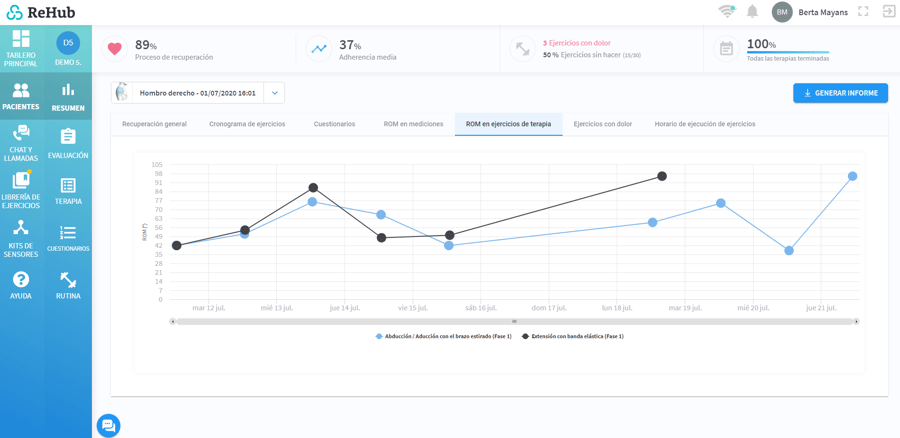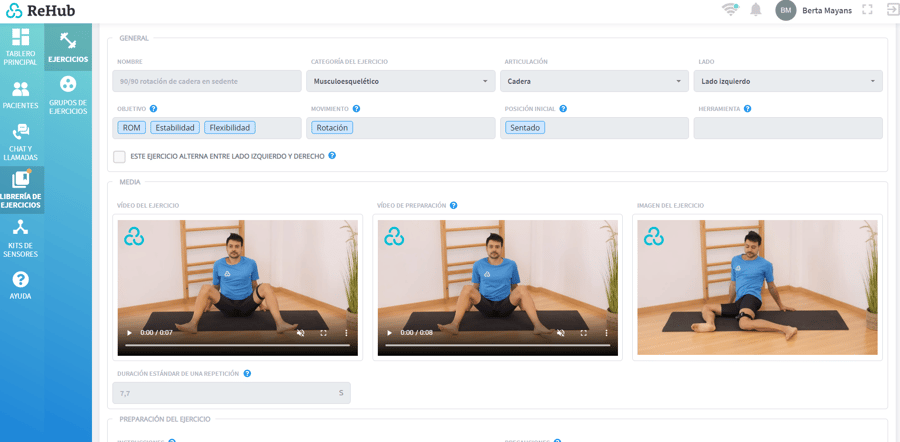ROM exercise therapy
A new graph has been created in the Patient Summary where the evolution of the patient's range of motion in the exercises during the therapy is shown. This way you can see if the range of motion increases or decreases with therapy. This can only be seen with patients who perform the exercises with sensors or who perform the exercises with camera using computer vision.

Dass 21 Questionnaire
The DASS-21 questionnaire is now available for physiotherapy professionals. It helps to evaluate the presence and intensity of affective states of depression, anxiety and stress. Each item is answered according to the presence and intensity of each symptom in the last week on a Likert type response scale from 0 to 3 points. Each scale has seven items and its total score is calculated with the sum of the items belonging to that scale and ranges from 0 to 21 points.
The Depression scale evaluates dysphoria, hopelessness, devaluation of life, self-deprecation, lack of interest / involvement, anhedonia and inertia. The Anxiety scale considers autonomic arousal, skeletal muscle effects, situational anxiety, and subjective experience of anxious affect. The stress scale assesses difficulty relaxing, nervous arousal, and being easily upset / agitated, irritable / over-reactive and impatient.
Configurable video duration
A new field called 'Standard duration of one repetition' has been added to the ReHub exercises. In this field the standard duration of an exercise repetition can be set when you are adding an exercise or a group of exercises, the practitioner can add a value as seconds per repetition of that exercise in the patient's therapy.

-1.png?width=700&height=350&name=Dise%C3%B1o%20sin%20t%C3%ADtulo%20(6)-1.png)
.png?width=1092&height=497&name=RehubbyDycare_cobalto%20(4).png)